Minregion — for breakfast, the committee — for lunch, the country — for dinner
The plan to transfer Western financial assistance for reconstruction from the Ministry of Communities and Territories Development, which forms the state regional policy (and this is a condition of the EU!), to the project of the Ministry of Infrastructure of Ukraine, Bankova Street implemented rapidly and with force. At the same time:
- canceling decentralization, which reached the finish line and was recognized by the G7 as "an irreversible reform that helped Ukraine survive the first months of Russian aggression" and which "should become one of the key principles of the recovery process";
- by eliminating the regional policy established by the Law of Ukraine "On the Principles of State Regional Policy" in July 2022 and aimed at developing the post-war potential of communities and regions (due to the needs of people who remained or came as a result of migration), and not mindlessly multiplying bridges and roads and sleeping areas in destroyed cities;
- wiping out everyone, except for the clan in the Office of the President of Ukraine (OPU), who won the intra-species struggle and could claim a share of the financial post-war pie.
As a result, three remained at the table, where the resources of international donors will be shared, three remained: the head of the Office of the President of Ukraine Andriy Yermak, the head of the SN party and the relevant parliamentary committee, the author of the scandalous bill No. 5655 Olena Shuliak, Deputy Prime Minister, the head of the united Ministry of Infrastructure Oleksandr Kubrakov (also a potential Prime Minister and the only one who, hypothetically, can make adjustments to the menu).
Thus, with this state of affairs, international partners can send any number of financial inspections to Ukraine in vain, and we will continue to be happy that foreign partners help us. However, this approach to things will not help us, especially if the public administration system itself legislatively and institutionally makes a sharp turn towards centralization, lining up for the interest of a specific group of people, not to mention direct corruption schemes to the detriment of the state. So it is important to call the "hotline" right now.
We are calling!
How and who implemented the construction and food expansion calendar plan
November 3, 2022
The first public signal about the preparation of a new menu by the authorities was given by the current Prime Minister of Ukraine Denys Shmyhal, when, on the command of Bankova Street, he transferred the Minister of Communities and Territories Development Oleksiy Chernyshov to the position of the CEO of “Naftogaz of Ukraine”. The former minister, who was on the shortlist for the casting for the premiere, was ready for such, to put it mildly, sharp personnel rotation. Since the summer, after the high-profile presentation of the comprehensive recovery program in Lugano, Chernyshov (a protégé of Timur Mindich, one of Kolomoisky's closest partners and a close friend of the First Assistant to the President of Ukraine Serhiy Shefir) failed to get to the President with his own recovery program.
In addition, according to our information, in three years Minister Chernyshov managed to immerse himself not only in the essence of Olena Shuliak's urban planning reform, but also in regional decentralization policy. Therefore, he decided to share with the head of state the conclusions that post-war reconstruction means not only construction. More precisely, it is not construction at all. In addition to the main message that there is no money for global recovery in the budget (and donors do not give this money to our country during the war), there was a lot to read in the folder of the former minister. It is about a recovery strategy taking into account the division of regions into four types, in accordance with the mentioned law on the principles of regional policy; the government's unpopular case of renting housing for IDPs at the expense of the state; purchase by the state from developers of ready-made apartments for those whose homes were destroyed. All this can be done at a price, if not fixed, then average for the region, since even before the war the market was oversaturated with unsold housing.
The doors of Bankova Street in front of Chernyshov were tightly closed by Deputy Chairman of the OPU Kyrylo Tymoshenko. The curator of regional politics, also dreaming of the premiership, played his game. While the "Great Construction" project (which Tymoshenko implemented together with Yuriy Golyk) during the war acquired an even more persistent flavor of grand corruption, the Fast Recovery Plan of Ukraine could become a great asset for the future.
At the same time, as ZN.UA already wrote, Tymoshenko entered into a clinch not only with Chernyshov, but also with the construction lobby, whose interests in power are represented by the head of the "Servant of the People" party, Olena Shuliak. A real scandal broke out at that time due to the completely understandable desire of Bankova Steet, in the person of Tymoshenko, to quickly get new housing for displaced people who lost their homes. In addition, as a result of this decision, a scandal also occurred due to the government's proposal to buy ready-made meters from developers at a fixed price of 25-30 thousand hryvnias per square meter. However, the developers tried their best and did not give anything away cheaply. Tymoshenko's resources to press on the hydra, which numerous representatives of the Ukrainian government have been forming for all 30 years of independence, turned out to be insufficient. Apparently, the head of the OPU Yermak would have enough resources to do this, but he is "playing" Shuliak.
Somewhere in this triangle of intraspecies relations, the very important bill No. 7198 on compensations, adopted in the first reading back in April, immediately after the deoccupation of Bucha and Irpin, got lost. In addition, the program of current and capital repairs of housing damaged as a result of Russian aggression also failed. The Cabinet of Ministers allocated small sums of money to the regions, the ministry and the civil–military administrations shackled the local authorities with an overly regulated mechanism of approvals for each window, and as a result, the affected residents of Bucha and Irpin only received help in November. Apart from that, not all of them.
Thus, while Chernyshov, Tymoshenko and Shuliak remained silent in response to critical publications in the media, the Minister of Infrastructure of Ukraine Oleksandr Kubrakov reported to the President about the real completion of successful reconstruction projects: the railway bridge across the Irpin River, a record-breaking deadline, urgent repair of damaged railway lines, kilometers of destroyed roads put into operation, by which weapons and reinforcements went to the front. It is important to note that it was worth it both for the country and for the President.
November 8
ZN.UA published materials from a secret meeting with the participation of the head of state and the prime minister, at which the new structure of the government was presented: instead of 20 existing ministries, the government announced 14. The first on the list was the monster ministry, under whose roof it was planned to unite the Ministry of Communities and Territories Development, the Ministry of Infrastructure of Ukraine and the Ministry of Reintegration of Temporarily Occupied Territories. In addition, several other ministries were to unite, now it does not matter which, because it is already clear that the main goal was the Ministry of Communities and Territories Development.
Then the authorities promptly received a large portion of criticism from experts: "It is unacceptable to unite the Ministry of Communities and Territories Development and the Ministry of Infrastructure of Ukraine!" "The Ministry of Communities and Territories Development and the Ministry of Reintegration of Temporarily Occupied Territories can be united! After all, in this case, it is about people and the formation of regional policy in a complex, taking into account the consequences of the war." "To strengthen the Ministry of Infrastructure of Ukraine with construction - the answer is also yes! After all, it's infrastructure, projects and only management." However, one month was enough for the authorities to overcome the negative information wave and forget about the experts' warnings.
December 2
The decapitated Ministry of Reintegration of Temporarily Occupied Territories by order of the government merges into the Ministry of Infrastructure of Ukraine under the leadership of the successful manager Oleksandr Kubrakov, whose team really takes care of all logistics, including military. In addition, Kubrakov automatically receives the status of deputy prime minister. Somewhere along the way, however, losing the Ministry of Reintegration of Temporarily Occupied Territories. However, here, apparently, infrastructure managers decided that it is not worth getting distracted by the problems of millions of displaced people. Thereby forgetting that this is a natural function of the Ministry of Reintegration, which has also become their sphere of competence. In fact, the entire announced reform of the Cabinet of Ministers of Ukraine was limited to this. Thus giving a start to the new state policy of construction expansion.
December 13
Olena Shuliak, the main lobbyist from developers, becomes the head of the parliamentary committee for the Organization of the State Power, Local Self-Government, Regional Development, and Urban Planning instead of Andrii Klochko. Although, in the context of the importance of completing decentralization (the state supervision of local self-government bodies is to be included, too) and the implementation of the principles of the post-war regional policy laid down by law and supported by the EU and the G7 (which will finance the recovery), MPs rightly predicted the position of the head of the specialized subcommittee, Vitaly Bezgin. However, the stars of Bankova Street long ago predicted a completely different future: the newly appointed head of the committee, Olena Shuliak, stood on the threshold of one of the most important days of her political career. It is worth noting that in order to achieve this goal she walked over people.
December 14
Under the colossal pressure of the construction lobby and Olena Shuliak personally on the people’s deputies from the ruling party, contrary to the expert community outraged by the corruption risks of the law, the National Union of Architects of Ukraine (NUAU), as well as the Association of Cities of Ukraine and local authorities, the "servants of the people", taking into account the votes of "constructively working in the parliament" OPZZh, pushed through the scandalous bill No. 5655.
Curator of local self-government bodies Kyrylo Tymoshenko, having his own experience in NABU investigations, prudently remained silent. However, the newly appointed Deputy Prime Minister Oleksandr Kubrakov (just like Shuliak and Bezgin, a native of BRDO) publicly supported the "reform" of the urban planning sphere that Shuliak imposed on the country. Despite the fact that on the day of voting, a public petition demanding the President to veto bill No. 5655 received three times more votes than needed for its consideration. In this way, the united ministry almost immediately became the platform for the implementation of the law, which has not yet been signed by the head of state. Well, what else was it created for?
December 17
The Cabinet of Ministers approved the new Regulations of the Ministry of Infrastructure of Ukraine, which, according to the government's resolution, should be called the Ministry of Community Development, Territories and Infrastructure. However, the function of regional policy fell out of the Regulations carefully written by Kubrakov's lawyers, literally according to Freud. Experts noticed it and lawyers corrected this detail. However, this did not change the essence of the event.
January 24
Kyrylo Tymoshenko, who became too toxic for the President, was dismissed from the position of deputy head of the OPU for regional policy.
However, Tymoshenko's resignation, who took with him the entire Dnipropetrovsk clan and four regional state administration heads, pleased not only anti-corruptionists, but also the author of the aforementioned bill No. 7198 on compensations, Olena Shuliak. So there was a chance to unblock the law in the Verkhovna Rada of Ukraine that would further strengthen the position of the united ministry. Thus, while the President is considering what to do with the political responsibility for Shuliak's scandalous law No. 5655, she further promises people quick compensation for repairs and destroyed apartments.
Here it is worth noting the level of cynicism of these promises. "In the current version, the law on compensation means money in the pockets of private developers," explains an expert in the field of urban planning Heorhiy Mohylnyi. — In this matter, it is important to separate the construction industry (i.e. construction companies and material producers) and developers (in fact, intermediaries). All the real huge profit with a margin from housing construction goes to the developers, and the profits of the construction companies are very low.
The first version of bill No. 7198 mostly provided for the construction by local and state authorities as customers of apartments instead of destroyed ones (compensation in square meters). The apartments were to be virtually at cost, with a small profit for the construction companies, and the developers were practically left behind. Meanwhile, the new version provides for compensation by financing the purchase of an apartment (with money through a certificate, not with square meters), that is, developers start to earn money as intermediaries," said the expert.
It is important to clarify that in our usual understanding, builders are developers. For example, "Kyivmiskbud" does not build anything itself: it hires construction companies on a contract basis, and sells apartments under its own brand. This is what actually happens with all major brands — apartments are sold by a developer who usually does not appear in the construction documents. This is one of the reasons — the minimization of taxes. Construction companies directly earn large sums only on budget projects.
As for compensation for the repair of damaged housing, MPs removed the possibility of receiving such financial compensation from the latest version of the law. That is, those who, preparing for winter, borrowed or invested the last money in repairs, collecting checks to compensate for expenses, will not receive anything. In addition, those who have not yet repaired must wait (perhaps for years) until masters come to them to fix the roof or hand over materials for repairs. Such nuances are certainly not reflected in the advertising infographics of Shuliak for the voters.
On the same day — January 24 — NABU detained with a bribe of 400,000 dollars one of Kubrakov's two deputies, namely Vasyl Lozynskyi, whom the deputy prime minister recruited from the old Ministry of Communities and Territories Development. Lozynskyi is called the prime minister's man, and he was also one who was made as a target (since Lozynskyi was released an hour before his arrest, many call this act planned by Bankova Steet. It is stated that people who work there simply correctly directed NABU to him). It is worth noting that Denys Shmyhal has not commented on Lozynskyi's arrest for a week, obviously realizing that he has little time left as prime minister.
However, the representatives of the old Ministry of Communities and Territories Development did not have this time at all after the arrest of Lozynskyi. In addition, the concerned deputy ministers of regional development Ivan Lukerya (regional policy) and Vyacheslav Nehoda (decentralization) — key stakeholders of the reform within the Ministry of Communities and Territories Development — automatically became toxic to Kubrakov and had to write resignation letters.
According to our information, Ivan Lukerya could stay in the new ministry to supervise regional policy - however, under one condition: if his lobbyists, namely "servants of the people" MPs involved in decentralization and regional politics, who tried to preserve the professional backbone in the new ministry, will vote for the scandalous bill No. 5655. It is worth noting that they voted.
However, after civil society has intervened, the President can veto legislation toxic to his ratings. That is why Kubrakov and his chief consultant Shuliak have no obligations either to the custodians of institutional memory - Nehoda and Lukereya, or to the country. That is why the former successful PR manager of "Ukravtodor" Ms. Oleksandra Azarkhina is delving into the principles of decentralization and regional policy today.
It is worth noting that "380 people worked in the Ministry of Communities and Territories Development before unification, and 309 in the Ministry of Infrastructure of Ukraine," says an employee of the Ministry. — They keep almost everyone — they just don't fill vacancies, and this is nominally exactly 15% of the planned reduction. At the same time, more than 50% of our people are being laid off. However, there are still no official documents and a new staff list. In addition, no notices of possible dismissal were given to anyone."
According to our interlocutor, people are demotivated. Many projects of international donors, which were implemented for communities, have been stopped. "Sometimes they call us and ask us such questions that we just want to go and drown," he adds. — The state secretary of the Ministry resigned a long time ago, and his duties are performed by the director of the financial department. So what kind of institutional memory can he convey? None at all! Everything is broken, including the civil service. The team that thinks in terms of projects is not interested in regional politics. It is worth noting that this is exactly what cannot be touched with hands, but what constitutes the rules for the functioning and development of communities, territories, regions, and the state in general."
January 27
The Cabinet of Ministers of Ukraine appoints former Deputy Minister of Infrastructure of Ukraine Mustafa Nayyem as the head of the newly created Ministry for Communities, Territories and Infrastructure Development of Ukraine. The entire financial and meaningful recovery process will go through the structure, which is directly subordinate to the Deputy Prime Minister Oleksandr Kubrakov. Thus, the chain is closed. People's deputies of the ruling party have already prepared a bill, which provides for the transfer to the State Agency of the process of restoring managers and budget programs of the Ministry of Communities and Territories Development and the Ministry of Finance of Ukraine. In addition, they will hand over to the State Agency the Fund for Liquidation of the Consequences of Armed Aggression, amounting to UAH 52 billion.
What can this expansion lead to, and how can it be resisted
Thus, it can be stated that a state monopoly is being created on the basis of the united ministry right now, which will attract not only all the main resources of donors and the budget, but also great powers, taking some of them away from local authorities. The monster ministry's activities are based on law No. 5655 with obvious corruption risks, which gives the ministry planning, implementation and control over recovery. In addition, the anti-corruption office at the State Agency, which Deputy Prime Minister Oleksandr Kubrakov loudly announced on the day of Mustafa Nayyem's appointment, against the background of the established system, looks, to put it mildly, not serious.
In addition, even if we set aside the corruption risks (along with the detrimental effect on the situation of the construction lobby led by Shuliak) and hypothetically assume that Mustafa Nayyem, together with his leader Oleksandr Kubrakov, became a tool in the hands of the winning clan (while themselves being guided exclusively by state interests and will do everything to ensure that funds at the level of the State Agency/Ministry of Infrastructure of Ukraine are distributed and spent transparently) there is a problem: a complete misunderstanding of the essence and policy of the sphere for which they are now responsible and to which international donors will pay primary attention. It is definitely not about automatic infrastructure recovery. Which, in fact, was officially recorded by the group of G7 ambassadors in support for reforms in Ukraine as a priority for 2023.
Therefore, no matter how much Mustafa Nayyem talks behind closed doors (there is no public communication on this matter) that Kubrakov's team is honest and will do everything right, as they "did in Ukrzaliznytsia and Ukravtodor", centralizing all processes and removing everyone who gets confused underfoot" is unprofessional and unpromising. It is impossible to compare a state-owned company and a state system in which, according to the Constitution, different types of power function — and local self-government with amalgamated communities is one of them.
Therefore, everything that will be planned within the framework of the state strategy of regional development and recovery of the Ministry of Communities and Territories Development /National Agency must correspond to the strategies of community development. Which, in turn, are part of the strategy of the regions. It is the bottom-up movement that is the essence of decentralization and recovery. Cities for people, not people for cities. This is how the EU, to which we are now candidates, thinks and lives.
If this principle is followed, it becomes less important who is responsible for finances. In addition, the eternal dispute about (and warring Ukraine is still among the world leaders of the Corruption Tolerance Index-2022) who is more of a thief — the central government or the local authorities — is also losing its relevance. In addition, it is important to follow the principle of distribution of power by enabling all possible anti-corruption mechanisms. Which today is openly and cynically violated both at the institutional and legislative levels.
Therefore, there is still no legal basis for creating a clear system of planning documents for the restoration of Ukraine. However, in addition to the published, but not approved, Plan for the Recovery of Ukraine (expected to last ten years with an expected financing of more than 750 billion dollars), there are already two types of competing planning documents at the regional and local levels. Which, once again, confirms the state's lack of a general regional strategy and coordinated actions of all branches of government, including local self-government.
"The unnatural inclusion in Law No. 5655 "On Regulation of Urban Planning" of documents outside the scope of legal regulation by this law introduced competition at the level of strategic planning of territorial communities," experts write. — Yes, the law "On the Principles of State Regional Policy" specifies that territorial communities develop a "strategy for the development of territorial communities." At the same time, the law "On Regulation of Urban Planning" operates with the notion of "the concept of integrated development of the territory of the territorial community", which is defined by the "strategic planning document".
It should be clarified that in this way the builders got into the field of regional politics even before the adoption of bill No. 5655. It is worth noting that the long-time but proven Shuliak’s deputy for construction issues, Natalia Kozlovska, led the sector of restoration plans under Chernyshov and now in Kubrakov's team, for which all urban planning documentation have been written. All these plans completely contradict the law on the principles of regional policy and all previously adopted strategies. However, there is simply no one in the ministry to object to this.
"This situation is unacceptable," the experts continue. — The system of planning documents for recovery must be unified, clear, avoid fragmentation and ensure the recovery and development of territories. In addition, everything must be done so that people are not lost behind square meters, tons, and kilometers. To do this, it is necessary to quickly review and harmonize two laws - "On Regulation of Urban Planning" and "On the Principles of State Regional Policy", the norms of which cannot compete, but only complement each other."
"People determine the needs for restoration, renewable infrastructure should focus on people," the authors of the law "On the Basics of State Regional Policy" are convinced. — According to various estimates, by 2030, 30 to 35 million people will live in Ukraine. This is much less than in the times when the main part of the infrastructure facilities was being built. Therefore, there is absolutely no point in restoring something that will not be used. The situation with the restoration of individual settlements, especially those that were completely destroyed, is no less difficult."
That is, the path that Ukraine chooses today is very different from what the experts are calling for, which has long been agreed with international institutions and which the Ukrainian state itself has been declaring all these years, striving to join the EU.
Today, the complex conceptual European approach to the system of public administration, which includes the formation of policies, is being replaced by the forces of the victorious political clan within the government with a more applied and utilitarian one, characteristic of project rather than strategic management. From now on, the construction concept prevails over the concept of regional development and decentralization. It is worth noting that this is a very serious turn.
The question arises whether it will enable post-war Ukraine to rise quickly? The examples of the post-war reconstruction of West Germany, Singapore, South Korea and Japan show that it will not. The projects implemented there were based on the strategy. However, there are many third world countries that somehow live within the framework of the utilitarian approach. For example, Somalia, Syria and Haiti. So why did we, who are fighting, including for the European future, find ourselves on the road with them?
Probably because it is always difficult for people with a good financial appetite, without state thinking, but with false values to get enough. At a time when hungry people are always guided by the principle that the simpler, the better.
The only thing that can spoil the appetite of the three persons around the table is the President's veto of Law No. 5655. In addition, the position of civil society can become a trigger for completely qualitatively new social processes. First of all, in the professional architectural and expert communities, which were able not only to organize a petition to the President, transferring Law No. 5655 to the zone of political responsibility of Mr. Zelenskyy, but also to build a further strategy, which includes the creation of the Urban Planning Code. In addition, public institutions here have a serious support - local self-government. Which also not only organized, but also withstood the pressure of the authorities, who, with the help of Shuliak, showed the communities a collection of instructions for journalists on covering certain topics in the country, in particular, writing about the need to support project No. 5655. However, local councils simultaneously accepted an appeal to the President, demanding a veto. In the same way, at a certain point, local self-government bodies will officially declare to donors that the recovery process is carried out centrally, bypassing local authorities.
Of course, if Bankova Street does not hear direct signals from civil society, communities and international partners, the risks are high and after the veto nominal amendments and another round of efforts to implement a new version of the old law can be expected. In addition, these actions will take place in conjunction with tough attempts to neutralize any opposition. Thus, the SBU is already working on the case of the National Union of Architects of Ukraine (a criminal case has been opened against the President of NUAU Oleksandr Chyzhevskyi), experts are fighting in court. In addition, Olena Shuliak filed a lawsuit against our author Heorhiy Mohylnyi, local self-government is also being set down: it is about the shameful court decision regarding the mayor of Chernihiv Vladyslav Atroshenko, who was illegally removed from office by the court.
There is one more tool on the agenda that can help the authorities and the President tighten the screws – introduction of the institute of prefects.
Bill No. 4298 on local state administrations, which will establish state supervision of local state administrations, has already been completely rewritten for the second reading in favor of Bankova Steet. However, there is also a very strong professional and expert lobby in this area, which is already maximally mobilized.
An animal appetite may well lead to indigestion. However, there is hope that one of the three persons, who sit at the main resource table of the country and on whom, in fact, the entire executive responsibility for the country rests, will decide to worry about the health of his own stomach, the reputation of the President and the future of the state. In this way, it is worth trying to feel and see the situation in the country not through the eyes of a long-time colleague at BRDO Shuliak or the head of the Presidential office Yermak, but through the eyes of ordinary Ukrainians who give their lives for it. This is their future, that Kubrakov’s ministry/government will have to rebuild and restore.
P.S. On February 7, a meeting of the specialized committee of the Verkhovna Rada of Ukraine will be held, where Oleksandr Kubrakov, Deputy Prime Minister for the Reconstruction of Ukraine and Minister of Community Development, Territories and Infrastructure of Ukraine, will report on the strategy of the ministry entrusted to him. Thus, we hope that the second announced presentation of the policy of the united ministry will take place, and it will take into account the risks outlined in this article.
Read this article in russian and Ukrainian.
Please select it with the mouse and press Ctrl+Enter or Submit a bug













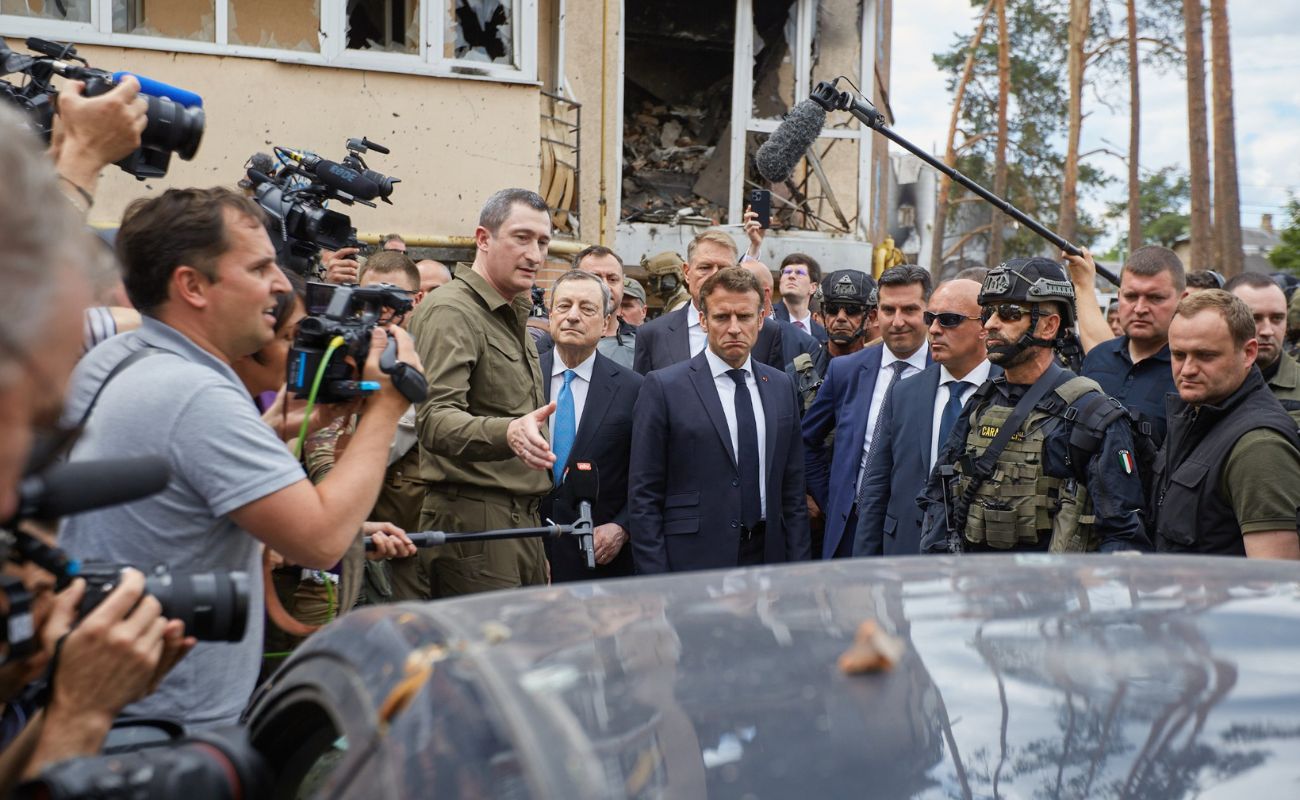

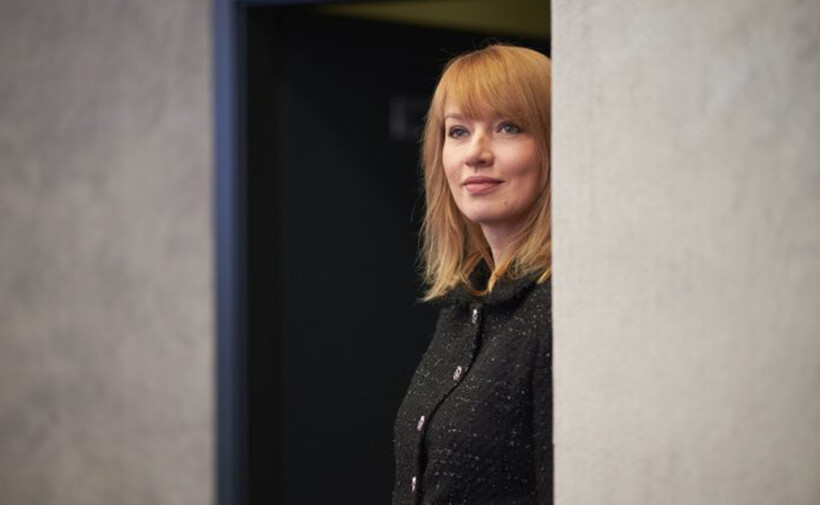
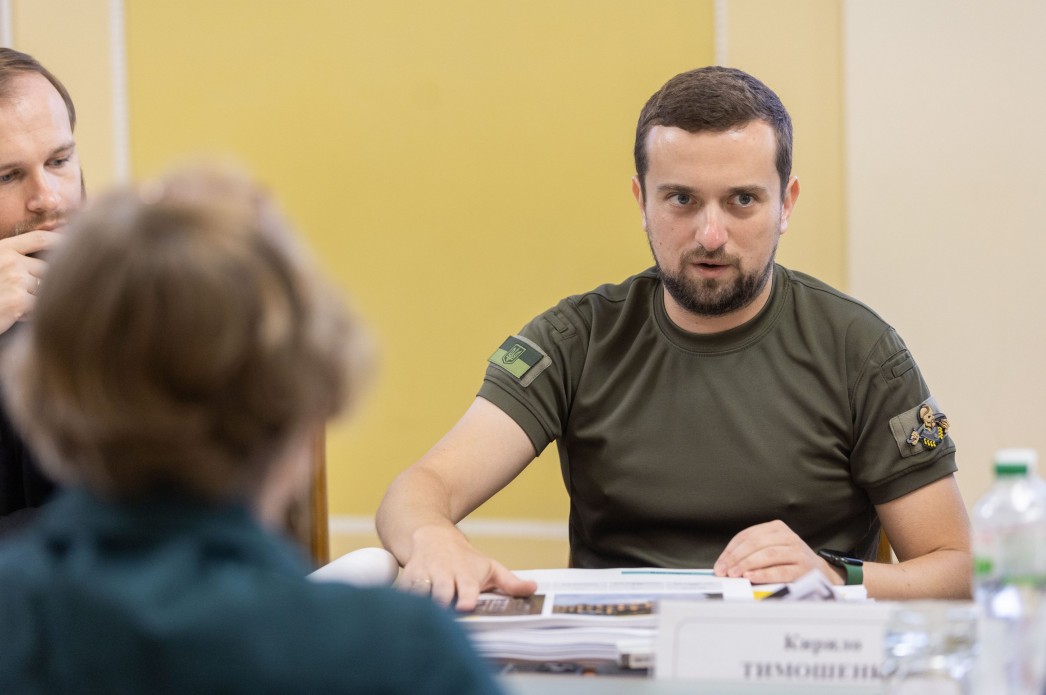
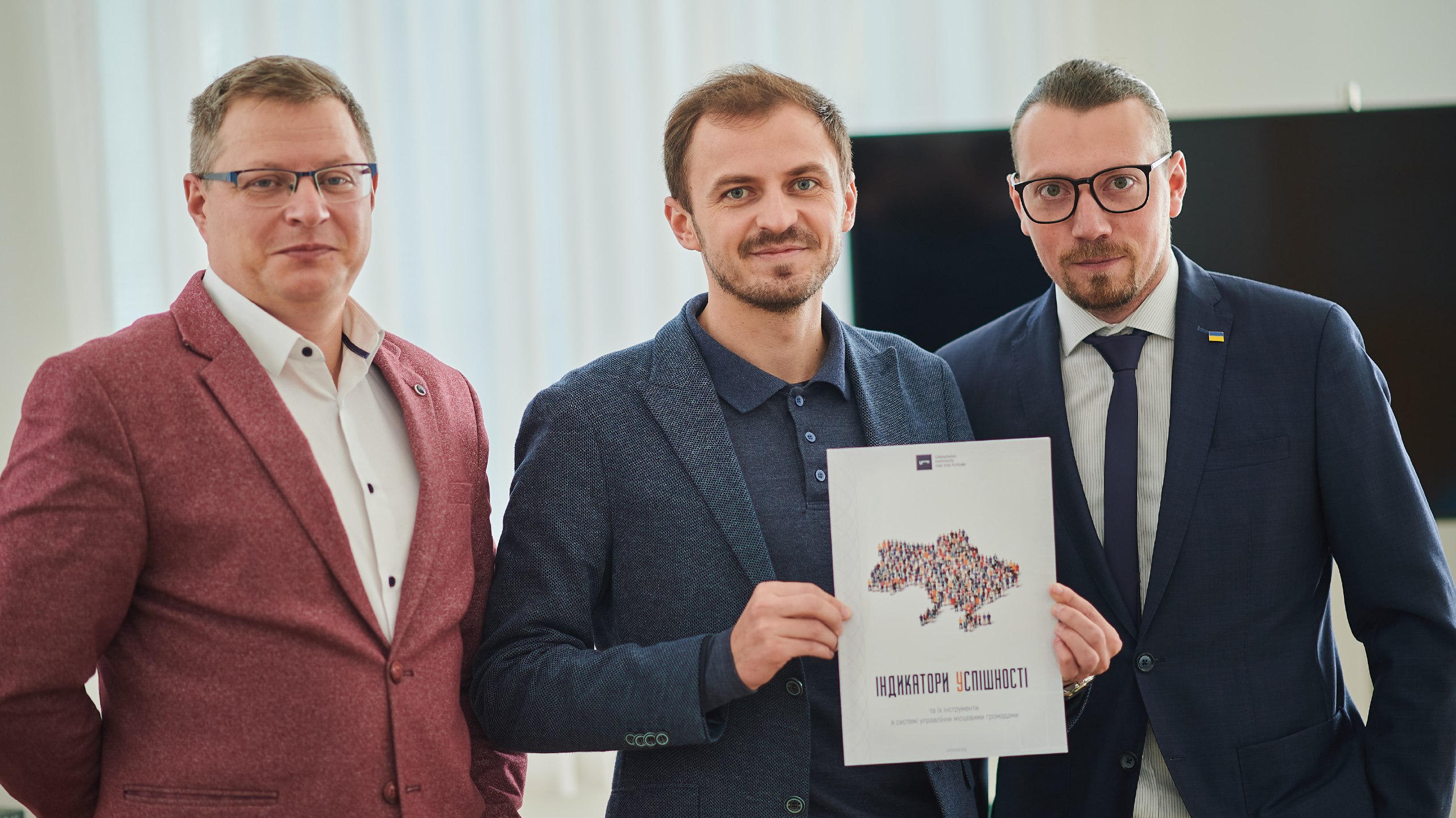

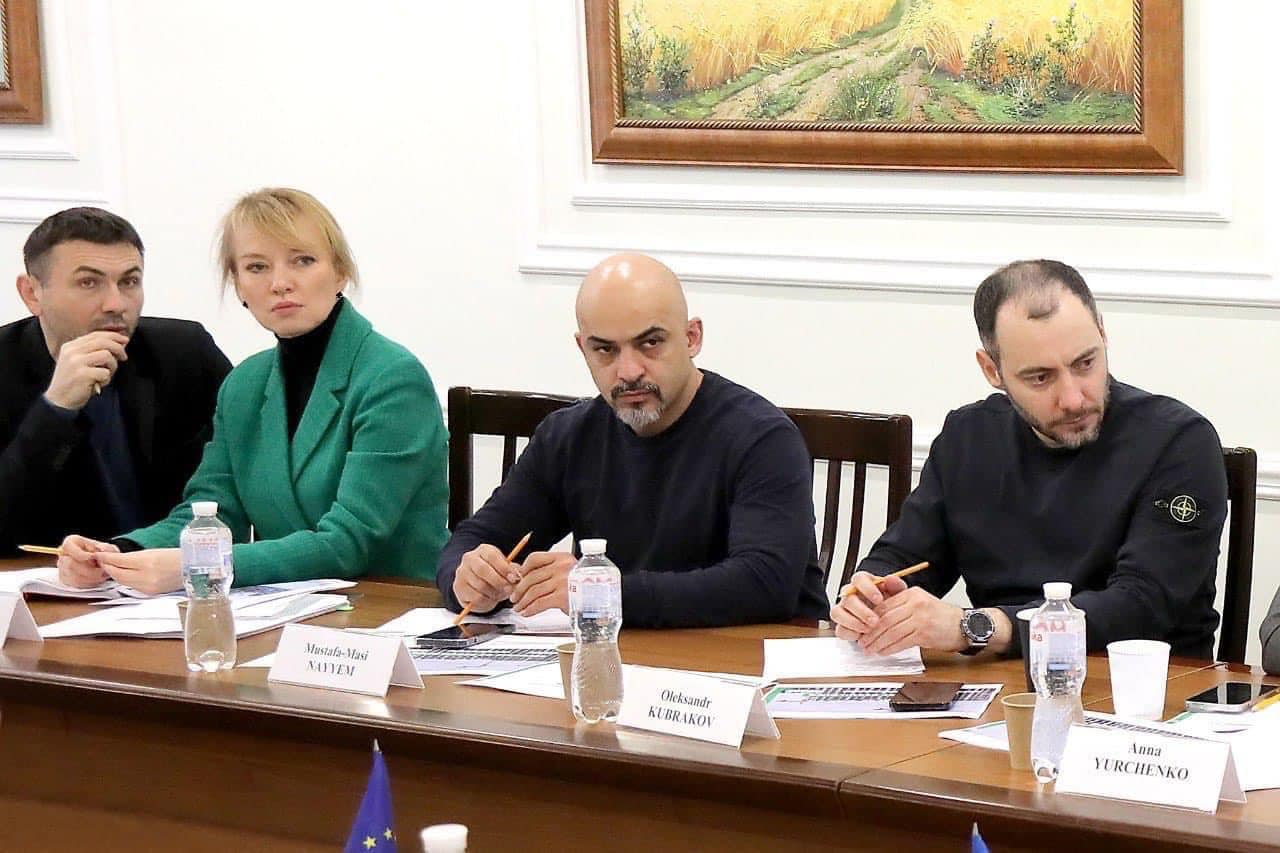
.jpg)

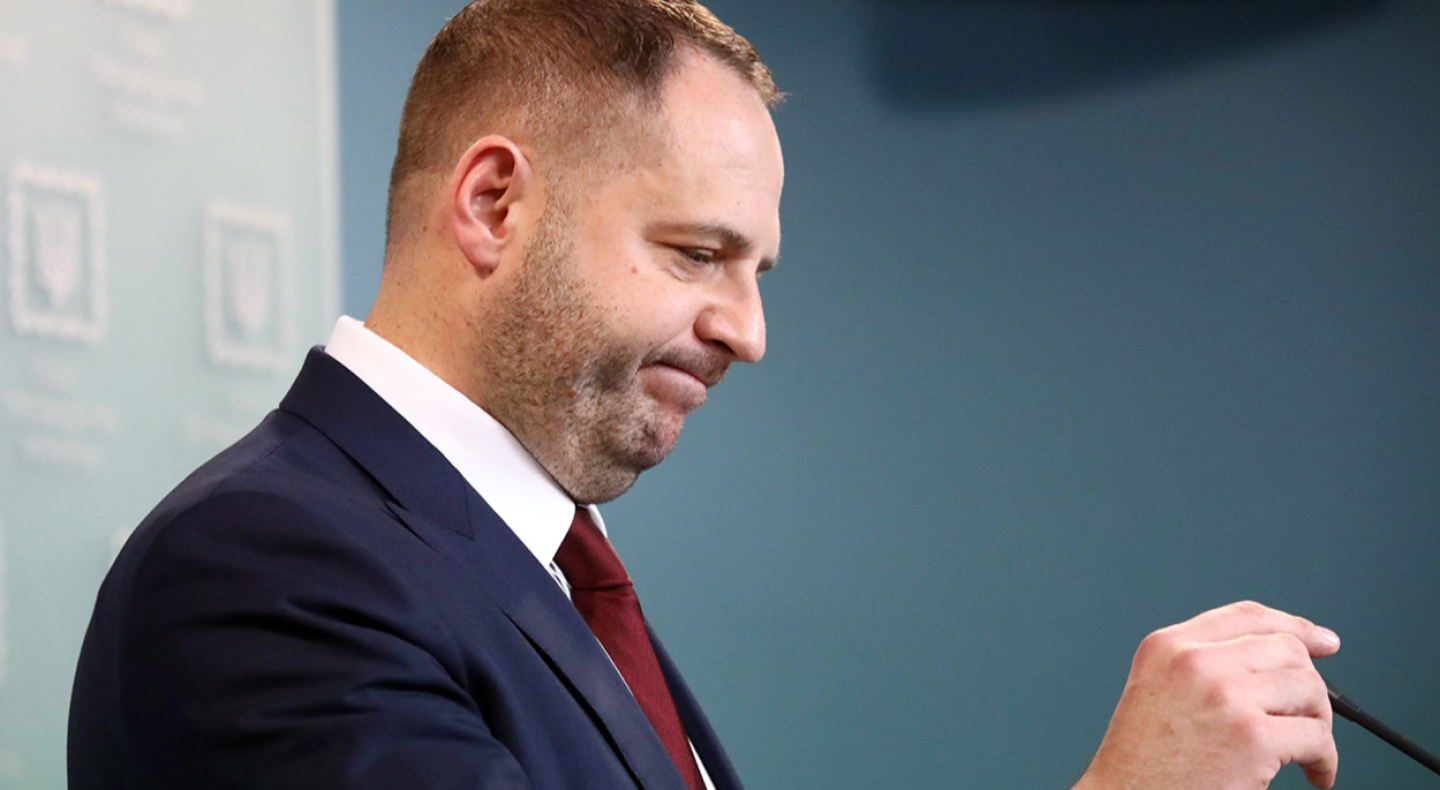
 Login with Google
Login with Google